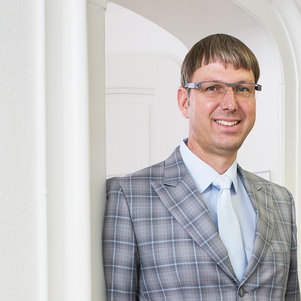This research initiative aims at strengthening complexity science for a better understanding of socio-technical-environmental systems and to prepare for the challenges of today’s globalized and hyper-connected world. The program is committed to the idea that we need to respond to the novel, data-driven construction of the social world with an operational framework that enables sustainable new modes of social, moral, legal and political thinking.
The PhD candidates in this program have a background in computational social science, data science, computer and engineering science, or relevant social sciences. They individually and jointly study complex socio-technical systems and design solutions to societal and moral problems that arise in relation to them. Understanding complex socio-technical systems in a digital world requires advanced modelling, utilizing the potential of the Internet of Things (IoT) as well as big and smart data. The program adopts participatory and crowd-sourced approaches to data collection and model validation. The program also seeks an understanding of the social and moral issues at stake. A range of issues regarding ethics, systems and governance (access, reliability, accountability and security, safety, and privacy) are therefore considered to be essential.
Digital society is shaped by software, algorithms, Wi-Fi routers, telecom backbones, smart devices, sensors, protocols, data, models and high tech systems. These tools and building blocks of our digital society are not neutral. They carry the intentions, worldviews, and assumptions, and mistakes of their makers. Digital technologies are not only enabling technologies, they are also constitutive technologies, in the sense that they change the very nature of the institutions, practices and activities they are applied to. Most often what society ends up with is digital gadgetry and social media that are very profitable to industry, but have not been crafted with the greater good of society and the flourishing of individual citizens in mind.
In the remainder of the 21st century we require the knowledge and capabilities that can help us to shape our digital societies in accordance with our political views, shared values and our social, legal and moral requirements concerning safety, security and privacy, openness, democracy and a range of other values. We also need methodologies to demonstrate and prove how exactly our views about a good society are expressed in the digital building blocks of organizations, institutions and smart infrastructures. Not only so-called 'functional requirements' count. This implies that we must help ourselves to the tools and methods for responsible digital innovation and design for legal, social and moral values.
Our values are often in conflict with each other. Safety costs money. Privacy and other human rights often clash with considerations of security. However, privacy enhancing technologies (PET) such as “privacy by design” are a good example of how value conflicts can be resolved by responsible innovation. Blockchain technology is another example of a digital technology with potentially vast societal and moral implications regarding trust, accountability, democracy and privacy. This PhD program sets out to explore, address these value tensions, and to develop solutions to overcome them.
The PhD projects in this program are part of a research community at Delft University of Technology, which in turn is part of an excellent EU research network and international research community. It will seek to harness the potential of Big Data, the Internet of Things, and Computational Social Science in a global context. A number of the research projects are also explicitly related to the NervousNet project of Dirk Helbing.
All projects are concerned with some aspect of participatory information systems, decentralized and participatory models of governance and crowd sourced solutions. These could be about: new forms of social sensing, new reputation systems, new social coordination systems, new privacy respecting technologies, gamification, augmented reality, interactive discovery, social and pluralistic information filtering, collective intelligence, online deliberation platforms, IoT-based real-time measurements of externalities, multi-dimensional value exchange systems, coordination or co-creation tools and other digital assistants, potentially using Artificial Intelligence and Virtual Reality approaches.
| More information |
| The PhD candidates are jointly supervised by Prof. Dirk Helbing (ETH Zurich and Delft University of Technology, initiator of the FuturICT and Nervousnet projects) in conjunction with Delft University of Technology staff. |

